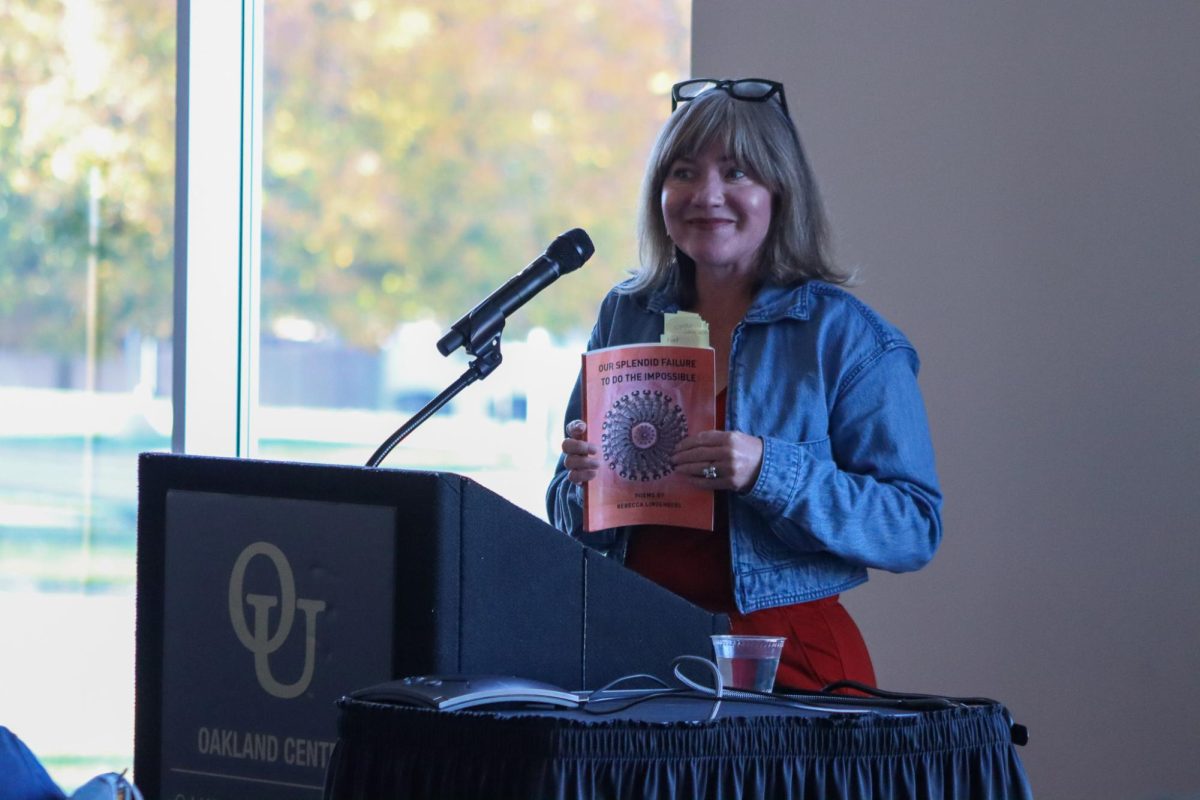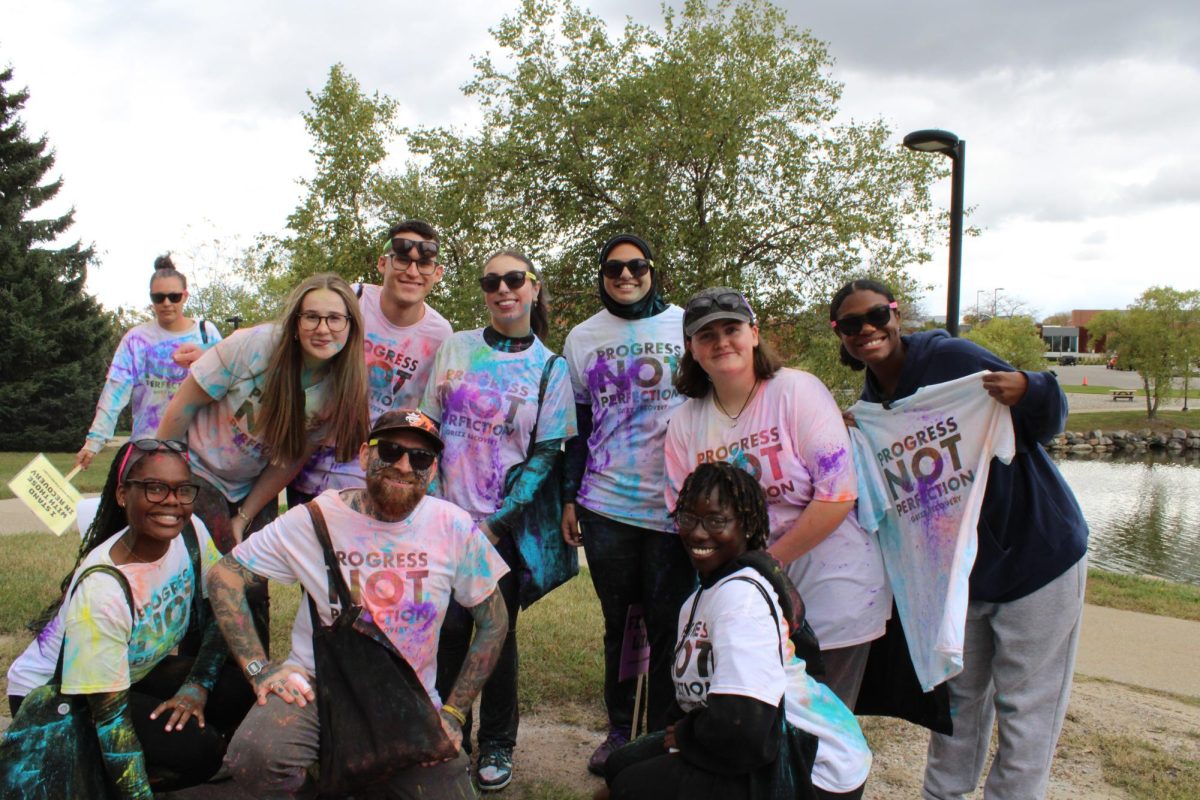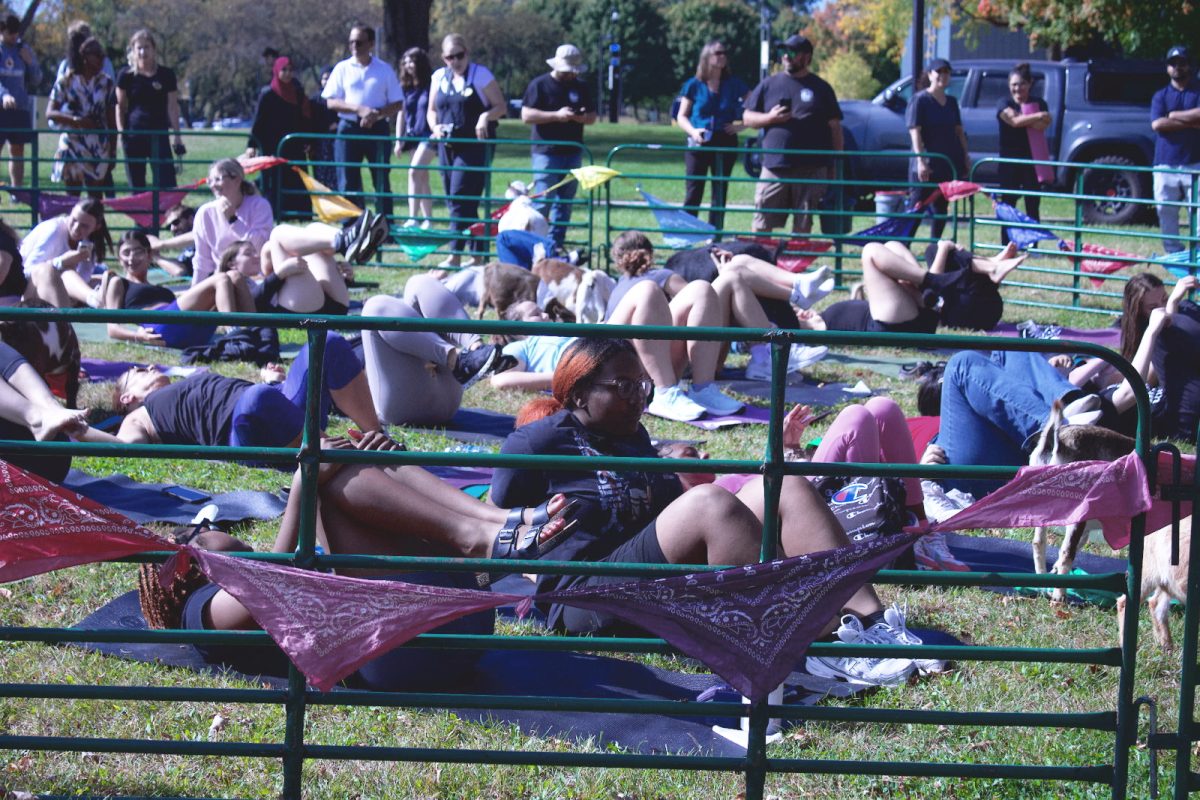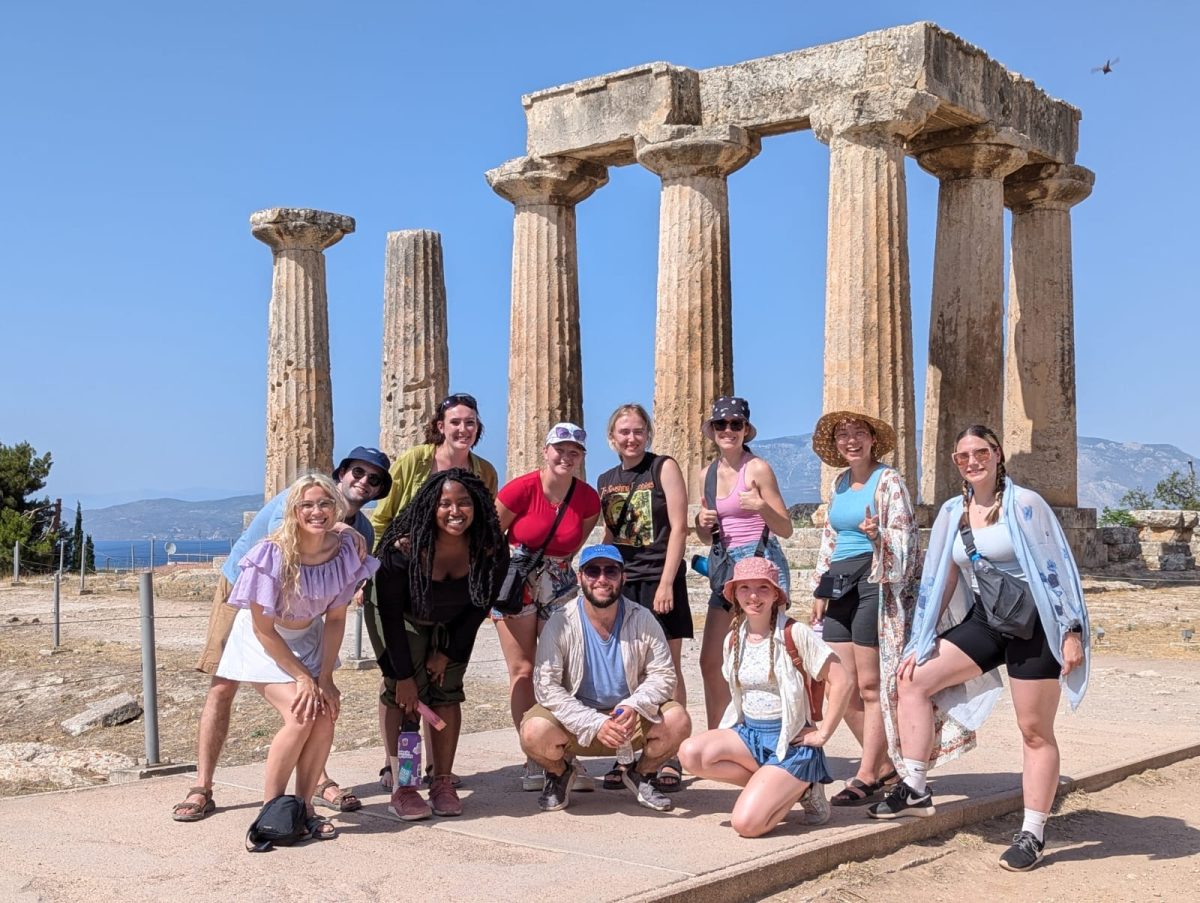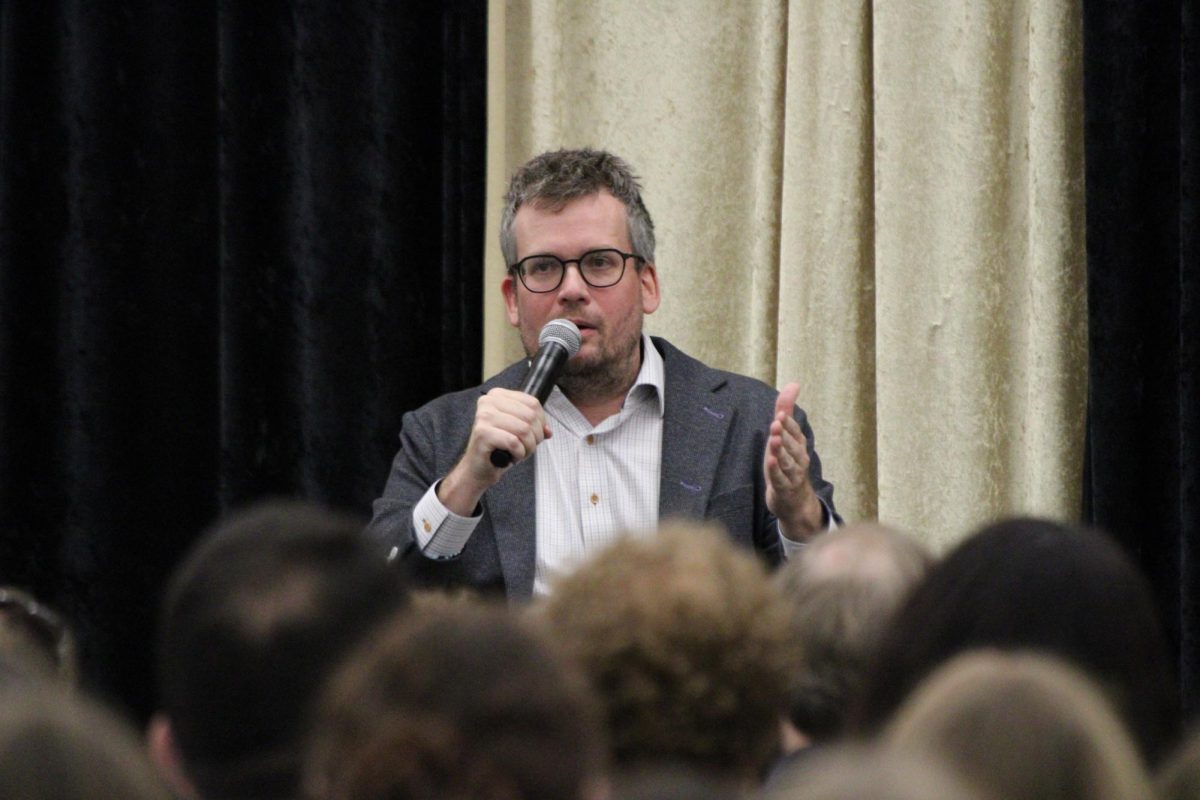Multi-awarded poet, essayist and professor, Rebecca Lindenberg, shared poems from her newest book, “Our Splendid Failure to Do the Impossible,” with the Oakland University community at the 35th Maurice Brown Poetry Reading.
On Oct. 24, the Oakland Center’s Ambassador Rooms became a podium for poetry readings, commemorating Maurice Brown, a professor of Poetry and English at OU at a celebration held since 1988.
Lindenberg is the recipient of awards like the Ohio Arts Council Individual Artist Excellence Award, an Amy Lowell traveling poetry fellowship and a National Endowment for the Arts Literature grant for her book “Love, an Index.” She also held a Q&A session after the reading.
“As you might tell from the title, the poems play with forms like indices, catalogs, lists and intra-referential encyclopedia entries on subjects ranging from Sappho to Bollywood, from Omaha to Rome,” Associate Professor of English Katie Hartsock said. “The collection also offers more traditional lyric poems so capacious and precise they are dizzying and dazzling.”
Breaking the silence of an eager audience, Lindenberg began with the poem “Woodpecker,” a family anecdote of masking the death of a bird with its liberty to fly away from home.
“When I was living in Berlin, Germany. I was on the Amy Lowell Traveling Poetry Prize,” Lindenberg said. “What they gave you at the time — it was like $55,000; I think it’s more now — and the only stipulation of the award is that you have to stay out of the United States of America for a year.”
“A Brief History of the Future Apocalypse” was second on the list, but first in the making during the author’s days in Europe. A journey through disaster and despair explored the overcoming of colloquial catastrophes through love.
“‘Our Splendid Failure to Do the Impossible,’ is just out this month, and it continues exploring this territory of impossible survival through language, through love, through more lists and more lyrics,” Hartsock said. “Lindenberg’s overlay allows the diabetic body and the chronically failing but surviving structures of Venice to beautifully illuminate each other and their vulnerabilities and their own internal forces that work for survival.”
Living with type 1 diabetes, Lindenberg dedicated many poems to Stella, her insulin pump, and the pancreas that accompanies her clipped to her bra at all times. “The only part of me I never find it difficult to love,” she said.
“I think it’s nice to go kind of like ‘chronic disease poem, love poem, sexy poem,’ it keeps the mood lighter,” Lindenberg said. “When I started to work on the poems about living with diabetes, I started to understand more clearly for myself what ongoingness really means to me … this is not an overcoming story, but it is a story that keeps going.”
“Spiel,” “The Impossible Body” and “Introduction to a Poem and a Reading” were also shared with the audience to explore the author’s journey with type 1 diabetes, intimacy and remembrance through varied formats such as prose and pantoums.
After three sets of applauses, the poet answered questions regarding poetic craft, writer’s block, the meaning behind her work and the muscle memory of creativity.
“Sharing your work is a very fun but difficult but necessary part of being a good steward of your own art,” Lindenberg said. “If you can muster the strength to do it, you can learn a ton about your work from sharing it out loud. Because poetry, I think, should always be sort of heard and sharing it with others, because you’re really seeing it in whole new ways than at the time of writing.”



